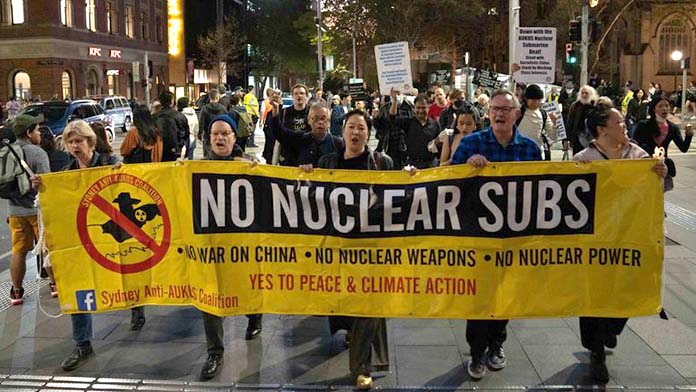The cost of groceries, rents and home loans is still climbing—but Anthony Albanese and Labor do nothing while the Commonwealth Bank made a record $10.2 billion profit in the last year. Inflation was still at 6 per cent for the year ending in June.
Interest payments have risen far more, an eye-watering 91.6 per cent over the past year. Employees’ cost of living is up by 9.6 per cent, the official Consumer Price Index shows.
Despite last year’s budget surplus coming in at over $20 billion, the government has refused any further support to reduce power bills or raise JobSeeker.
This has seen Albanese’s approval drop nine points since March, according to a poll in The Australian.
The parliamentary standoff with The Greens over Labor’s Housing Future Fund has focused attention on out of control rents and house prices—which Labor’s policies would do nothing to address.
Instead Labor is making a small gesture to renters’ rights, taking timid proposals to National Cabinet to ban no grounds evictions and limit rent rises to one a year.
But Labor is unwilling to challenge the wealthy investors or property developers who are pushing house prices and rents far beyond what people can afford.
Fossil fuel profits
Even as Europe burns following the hottest months in human history, Labor continues to back fossil fuel expansion and mining company profits.
It has thrown its support behind farcical carbon capture and storage, rushing to prepare new legislation to allow gas company Santos to dump it beneath East Timorese waters. All to support the enormously polluting Barossa gas project that should be stopped.
Carbon capture is a fraud. The technology simply serves as an excuse for continued oil and gas mining.
Santos plans to pipe carbon dioxide 500 kilometres from Darwin into the Bayu-Undan reservoir, “about as feasible as saying ‘We’re going to put carbon dioxide on the moon”, the Australia Institute’s Polly Hemming told The Saturday Paper.
Polling now shows the Voice to Parliament headed for defeat.
Dutton is running a racist campaign. But the Yes case is floundering because the push for a powerless advisory body has not generated any enthusiasm, with some Indigenous activists opposed outright.
The blockade organised by Indigenous activists at Lee Point in Darwin shows the kind of action that can force change. When Minister Tanya Plibersek refused to halt plans to bulldoze Larrakia land for Defence housing, local activists began protests. Now Defence Housing has agreed to stop work until 31 March next year.
The Labor National Conference will see a significant push by some unions and the left to oppose the $368 billion AUKUS nuclear submarines. More than 40 Labor branches have passed motions against them. But the conference itself won’t stop AUKUS. Albanese’s Labor is committed to running Australian capitalism.
We need industrial action and a wider campaign to ramp up opposition to Albanese’s militarism. Strikes and protests can win wage increases and build the movements for real action on climate change and Indigenous rights. It is struggle from below that is key to fighting the system.
Strike action can win cost of living pay rises
Warehouse workers at API in Melbourne have shown it’s possible to win pay rises matching inflation, winning 7 per cent this year after four weeks on strike.
Union members at the Brotherhood of St Laurence have also won gains on gender affirmation leave and pay after strike action, and were planning further strikes for an inflation-matching pay rise as we went to press.
But in NSW, union leaders have squandered the opportunity for united action on pay and workloads. Strikes by nurses, teachers and other public sector workers helped drive the Liberal government from power in March. But instead of continuing to fight, most union leaders have simply accepted Labor’s offer of a 4 per cent pay rise—a hefty pay cut after inflation.
The nurses’ union said 58 per cent of its branches voted to accept 4 per cent in early August. But the union leaders made no attempt to galvanise the widespread rank-and-file anger and push for further industrial action to win more.
The Health Services Union pushed through a $3500 across the board pay increase, equivalent to the government’s new 4 per cent pay cap. While some lower paid staff get 8 per cent, other health workers received just a 2.7 per cent pay rise.
Now the NSW Labor government has reneged on its offer to boost teachers’ pay beyond 4 per cent. The Teachers Federation is calling it of “an act of betrayal” but is only telling members to contact local MPs and hold local rallies at a handful of MPs’ offices. The Activist Teachers Network is running the ACTION ticket in the current Teachers Federation elections for a fighting alternative to the failed “wait for Labor” strategy.
NSW teachers need to restart their industrial campaign, and join with independent school teachers who are now poised for strike action.






